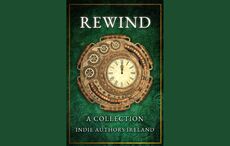A controversial Dutch academic once member of a prestigious Dublin think-tank has made headlines by airing the claim that 44% of Irish families would be better off drawing the Dole (collecting social welfare) than working.
Richard Tol, a somewhat eccentric looking Dutch economist well-known for his bizarre hair-dos, contributions to theirisheconomy.ie, and for once working at the ESRI (Economic and Social Research Institute), said that he will likely publish the working paper under the auspices of the University of Sussex, where he now works, rather than through the ESRI, from which he has since resigned.
The report, findings from which were published by the weekend's newspapers, was hastily removed from the think-tank's website, an eyebrow-raising move described as 'unprecedented' and dramatic enough to force Minister for Social Protection Joan Bruton to deny having had any involvement in its hasty deletion of the working paper.
The think tank's director Frances Ruane, has said that the public could have been misled by the grim indictment Tol offered of Ireland's bountiful social welfare system, though denied that the organization had come under any external pressure to have it removed or retracted.
And although Prime Minister Enda Kenny added that while he would have been disappointed by any direct contact or interference between Government and the think tank, generally viewed as Ireland's most influential and prestigious, the concerted and uniform attempt by Government ministers to deny any involvement in the paper's mysterious silencing although strikes many as suspicious.
Tol has said that although he intends to revise the first draft of the working paper, which emerged in late May, he stands by its findings that a substantial amount of the population would be better off on social welfare than holding down a job.
44% of those with families would be better off not in employment, while 15% of single workers would. The report, compiled largely from Central Statistics Office (CSO) data, found that 30% of an average monthly wage can be spent on childcare.
Despite its removal from the ERSI's pages, an extant copy of the report, 'Working Paper No. 436', remains posted on TheJournal.ie here.
A polarizing figure within Irish academia, Tol's premature departure from the Dublin think-tank earlier this year was also the stuff of media reporting and sensationalism.
An outspoken dissident of the ESRI's independence, Tol (along with famous his hairstyle) didn't fit into the usual straight-laced think-tank mold; his dissident comment on not just the ESRI but many other political actors in Irish society as well as his hasty exodus from the body drew accusations that he had been 'silenced' or pressured into doing so.
A blog at the time of his departure by Dr Stephen Kinsella of the University of Limerick (UL), himself a prominent young Irish economist and often-time media commentator, opined that Irish public life would be poorer as a result of his resignation from the Institute.
Just as we are for the strange retraction of his working paper.
Richard Tol, a somewhat eccentric looking Dutch economist well-known for his bizarre hair-dos, contributions to theirisheconomy.ie, and for once working at the ESRI (Economic and Social Research Institute), said that he will likely publish the working paper under the auspices of the University of Sussex, where he now works, rather than through the ESRI, from which he has since resigned.
The report, findings from which were published by the weekend's newspapers, was hastily removed from the think-tank's website, an eyebrow-raising move described as 'unprecedented' and dramatic enough to force Minister for Social Protection Joan Bruton to deny having had any involvement in its hasty deletion of the working paper.
The think tank's director Frances Ruane, has said that the public could have been misled by the grim indictment Tol offered of Ireland's bountiful social welfare system, though denied that the organization had come under any external pressure to have it removed or retracted.
And although Prime Minister Enda Kenny added that while he would have been disappointed by any direct contact or interference between Government and the think tank, generally viewed as Ireland's most influential and prestigious, the concerted and uniform attempt by Government ministers to deny any involvement in the paper's mysterious silencing although strikes many as suspicious.
Tol has said that although he intends to revise the first draft of the working paper, which emerged in late May, he stands by its findings that a substantial amount of the population would be better off on social welfare than holding down a job.
44% of those with families would be better off not in employment, while 15% of single workers would. The report, compiled largely from Central Statistics Office (CSO) data, found that 30% of an average monthly wage can be spent on childcare.
Despite its removal from the ERSI's pages, an extant copy of the report, 'Working Paper No. 436', remains posted on TheJournal.ie here.
A polarizing figure within Irish academia, Tol's premature departure from the Dublin think-tank earlier this year was also the stuff of media reporting and sensationalism.
An outspoken dissident of the ESRI's independence, Tol (along with famous his hairstyle) didn't fit into the usual straight-laced think-tank mold; his dissident comment on not just the ESRI but many other political actors in Irish society as well as his hasty exodus from the body drew accusations that he had been 'silenced' or pressured into doing so.
A blog at the time of his departure by Dr Stephen Kinsella of the University of Limerick (UL), himself a prominent young Irish economist and often-time media commentator, opined that Irish public life would be poorer as a result of his resignation from the Institute.
Just as we are for the strange retraction of his working paper.




Comments